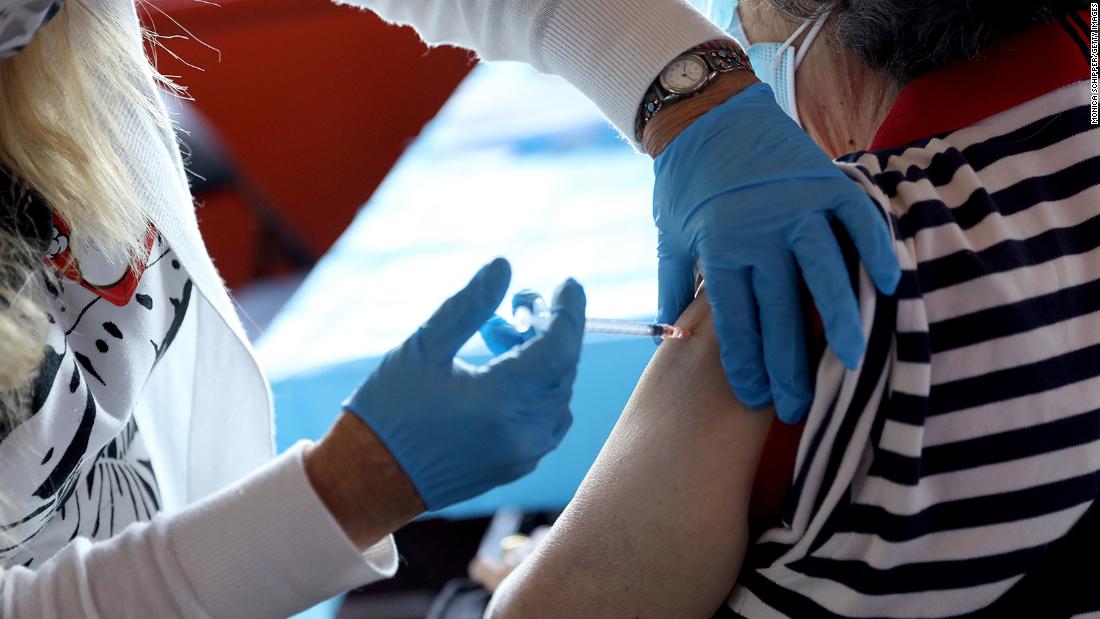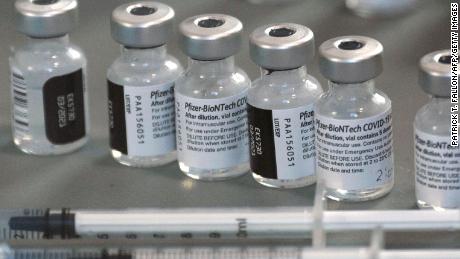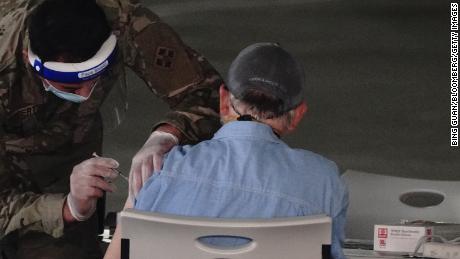Complicating matters, many of us have lost confidence in our ability to make the right medical choices with the information we can get our hands on. We’re not sure we can trust our leaders to give us the most accurate science. This doubt and suspicion are both casualties of
misinformation, mismanagement and missed opportunities over the last year. So, if you’re unsure of what to do right now, forgive yourself and focus on what we all know to be true — vaccinating as many people as possible will slow the spread of this potentially deadly disease.
On Thursday, Pfizer/BioNTech
announced that it was developing a booster shot to help increase the strength of antibodies, particularly
against new variants of the disease and would soon be seeking FDA emergency use authorization. The US Centers for Disease Control and Prevention and the US Food and Drug Administration quickly took the unusual step of contradicting the corporation,
saying in a joint statement that “Americans who have been fully vaccinated do not need a booster shot at this time.”
Pfizer released no new evidence about long-term efficacy. The
Israeli government noted that the Pfizer vaccine was still 93% effective in preventing severe disease and hospitalizations — only a 4% drop from earlier studies — which is still extremely reassuring.
Who is right? Regular people like you and me just don’t know. Before the pandemic, my confidence in the CDC was extremely high — and that was regardless of whether a Democrat or Republican was president. But like many Americans on the left, I watched the parts of the CDC crumble under the
Trump administration’s mismanagement and, as with many people, this
weakened my confidence in the agency. Unforced errors
like the initial guidance against masking, back in February of 2020, didn’t help.
At the same time, former
President Donald Trump,
congressional Republicans and
right-wing media appear to have
undermined conservative faith in the CDC and FDA with their relentless attacks on them. Even as many Americans across the political spectrum
cooperated in the lockdowns key to stopping the spread of Covid, too many conservatives have increasingly come out against such measures. They turned anti-masking into a way to
signal their commitment to Trumpism, and as soon as Trump was out of office, many
jumped on board the anti-vaccination train.
We have numerous tools to fight the pandemic, and most reasonable people know doing nothing isn’t an option, but after the past year, the waters of public discourse are awfully muddy. And now, with a major pharmaceutical company appearing out of step with two government regulatory agencies — like many on both sides of the aisle — I do not know what to do next. This has me on the edge.
All of us have been struggling to make potential life and death decisions throughout the pandemic. The vaccines — and the speed at which they arrived — have given us some relief from that burden, helping to create a new normal
in which we can gather together and reforge the bonds of community. In fact, on Friday, the CDC announced that vaccinated kids and teachers can
go back to school without masks. But the Pfizer statement makes me wonder if parents like me are actually getting the right advice.
That said, If you are wondering what to do, part of the solution is clear: prioritize getting as much of the world vaccinated as fast as possible. The Delta variant seems to have emerged from a largely
unvaccinated population in India and, in the US and across the globe,
poses the greatest risk to unvaccinated populations. The variant
can break through vaccinations, and the CDC does need to continue to be straight forward about that, but it must also continue to emphasize that vaccinations significantly drive down the risks of both infection and serious illness.
The unvaccinated are getting sick, going to the hospital and too frequently dying. Vaccinations, meanwhile, are
estimated to have saved almost 300,000 American lives, and moreover are our best tool at stopping Covid from mutating in dangerous new ways. New variants are vastly more likely to emerge from outbreaks in unvaccinated populations.
I’m skeptical that we can deploy a “vaccine passport” system that monitors access to public spaces like malls, stadiums, theaters and shops, while also protecting civil liberties and the privacy of people who cannot be vaccinated for medical reasons, but I am extremely confident that existing mandatory vaccination structures in schools and universities, for example, can easily be extended to cover Covid-19.
I work at a university. I do not want an unvaccinated colleague or student in my office without a mask. I do not want access to private medical information, but I do want my leaders to lead and require that others take the necessary steps to protect the safety of the community.
A
recent poll from the Kaiser Family Foundation found that employers can lead the way by encouraging or requiring vaccines and offering paid sick leave for post-vaccine reactions. That’s a good first step, but we should not leave paid sick leave up to individual bosses. Political leaders
should mandate paid time off for vaccine side effects, an area the private sector has failed at for many blue-collar workers.
In reality, the question of boosters is a side-issue in the Covid struggle — albeit one that consumes me when I lie in bed at night trying to fall asleep, and one that’s revealing about the challenges in clear communication from our medical and political leadership as conditions and the virus both change. We have the tools to end this pandemic, but it’s only going to happen if we use those tools to alleviate risk where the risk is greatest. Sure, give me a booster if we have to, but the priority has to be getting those who have access to vaccines to get it even if they are hesitant. Also, providing vaccines to all the places around the world where supply is scarce is vital, because the virus isn’t going to wait around.
![]()






